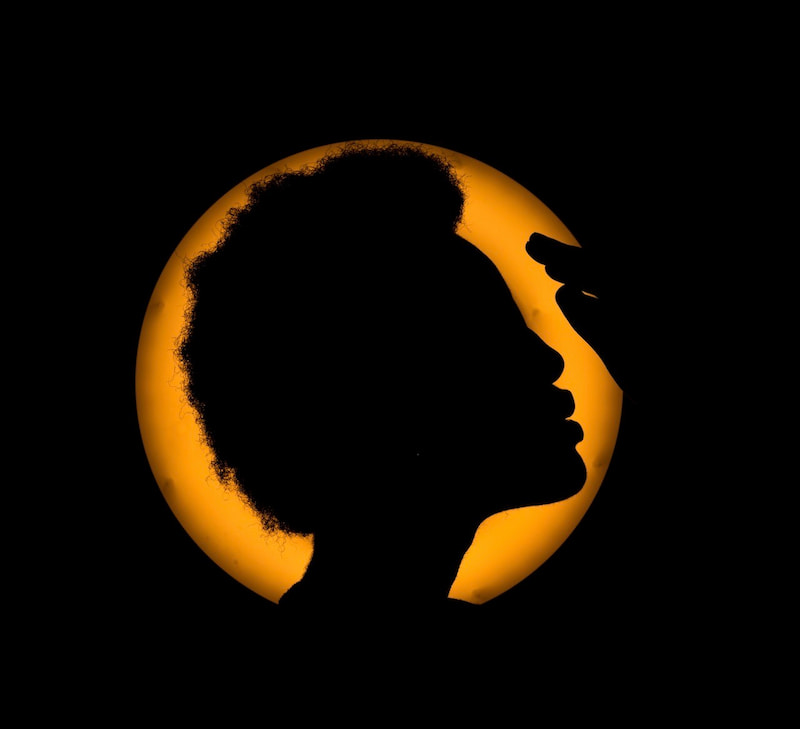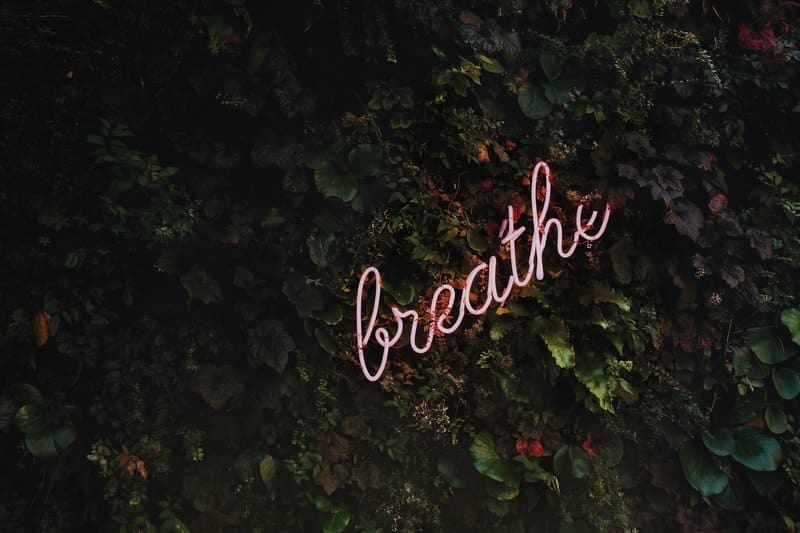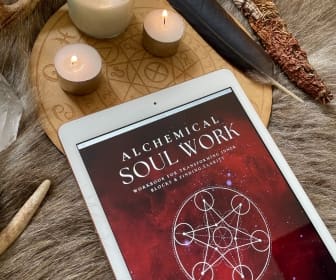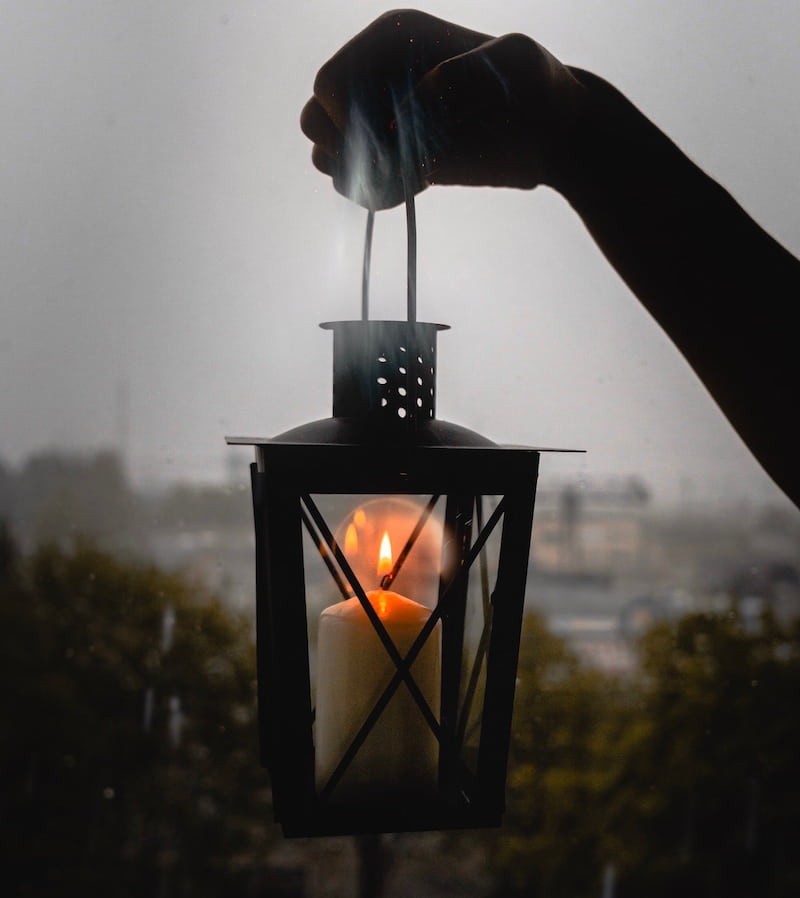In life, we all tend to believe that we are unworthy on some deep, undefinable level.
No matter whether we believe that we’re unworthy of happiness, pleasure, fulfillment, or even love, we all have a “core wound” deep inside that varies according to our circumstances and life experiences.
This deep, fundamental wound is the result of the foundational beliefs that we were taught since birth, contributing to the faulty self-image that we continue to carry around with us to this very day.

Soul Work Compass Course:
Drifting through life without direction is exhausting. If you feel paralyzed by confusion or self-doubt, this course is your map out of the fog. We guide you safely through your inner darkness to uncover your true needs, values, beliefs, wounds, and sacred gift. Turn your confusion into crystal-clear direction and find your True North today.
Our primal core wounds are our deepest-seated pains in life. They are our oldest and most miserable friends. For most of us, these core wounds within us are ruled by the following two mistaken beliefs:
1. “I am flawed and therefore a bad person.”
2. “I must change or fix something about myself in order to be acceptable.”
Table of contents
The Original Sin (aka, How We Became Wounded)

It has been said, ‘time heals all wounds.’ I do not agree. The wounds remain. In time, the mind, protecting its sanity, covers them with scar tissue and the pain lessens. But it is never gone.
– R. Kennedy
Christian teachings make reference to our core wound all the time in the form of the “original sin.”
However, once we put aside the dogmatic associations connected with this notion, we see that “original sin” reveals something profound about our deep-rooted core wounds, i.e., how issues such as generational guilt, self-rejection, abuse, and self-hatred have passed on from generation to generation.
Often, our core wounds start in childhood. When we’re little, we are free spirits, and we exist outside of the confines of societal conditioning.
However, at some point during our childhood, we began to experience constraints. As we “ate from the Tree of Knowledge” (aka, grew and evolved as human beings), we slowly came up against invalidation and rejection from our parents, elders, and peers.
Want to get LonerWolf at the top of your Google search results?
We began to experience disapproval and punishment for being our authentic selves, i.e., for having unique feelings, thoughts, outlooks, interests, and needs. And so, our core wounds began to grow.
As our core wounds began to deepen throughout our childhood, pubescent, and subsequent adult years, we began to put up barriers of protection to keep other people from hurting us. Although in many cases these barriers protected us, the reality is that they slowly begin to trap us inside, limiting our ability to experience true freedom and authenticity in our day-to-day lives and in all of our relationships.
Our core wounds are the cause of most of the fatigue we experience in daily life, preventing us from accessing the huge stores of untapped energy and potential within us. They are also what make solitude so refreshing, as they give us a momentary respite from the lies we tell ourselves and others to protect our deep, unhealed injuries.
Free Core Wounds List + Prompts!
Want to download a list of core wounds and three powerful accompanying journaling exercises? Get our FREE printable!
Finding Your Core Wounds and Soul Work

In the words of Sufi mystic Rumi,
The wound
is the place
where the Light enters you.
There is a deeper dimension to uncovering our core wounds that goes beyond mere psychoanalysis and self-improvement mentality.
Finding our core wounds is a potent form of Soul Work in the sense that it shines a light on the densest blockages that obscure our True Nature.
Like dark clouds that obscure the sun, our core wounds dim the Light within us, causing us to feel dull, empty, and alone inside. Usually, the result of carrying the burden of unresolved core wounds is persistent low-level malaise and depression, and in extreme situations, a Dark Night of the Soul.
But although our core wounds can trigger such intense suffering, they are also an opportunity to learn the power of introspection, trust, surrender, compassion for those suffering the same wounds, and empowered transformation.
Like a diamond undergoing extreme heat and pressure to form in the deep layers of the earth, we need experiences of contraction and discomfort to grow and evolve on all levels.
In the poetic words of Rumi, the wound (core wound) is the place where the Light (the presence of the Soul, Spirit, God, etc.) enters you.
Would you like to save this?
Your information will never be shared.
The beauty of Soul Work is that it shows us the deeper meaning and higher purpose of our core wounds, and the inherent opportunities for transformation that they provide us with.
12 Signs You Have an Unhealed Core Wound

There are wounds that never show on the body that are deeper and more hurtful than anything that bleeds.
– Laurell K. Hamilton
Everyone experiences their core wound differently. Depending on your level of emotional sensitivity, your connection to your Soul, and the level of rejection you faced while growing up, your core wound could be an irritating scab or a festering laceration.
How is your core wound manifesting itself in your life? There are a number of signs that reveal the depth of your core wounds.
Here are some of the most common symptoms:
- You enter relationships in the hopes of finding what you lack inside in the other person (i.e., you want to “feel complete”).
- You often feel inadequate, and you often have thoughts or feelings such as: “I am not enough,” “I am incomplete,” “I am unlovable,” “I don’t count,” “I am imperfect,” “I am powerless,” and “I am bad.”
- You constantly feel a sense of abandonment, resentment, or betrayal from others.
- You have a perfectionistic attitude towards life (i.e., you gain your self-esteem from the outcome of your actions instead of the intention behind your actions).
- You suffer from chronic anxiety that comes as a result of anticipating the emotional pain of being found unworthy, which deep down you think is true.
- You repeat the same old mistakes in relationships because you’re stuck in negative unconscious programming, and you don’t feel courageous enough to make a change.
- You find happiness in your misery because it’s a source of attention in the form of sympathy from other people.
- You have a large, unexplored Shadow Self.
- You behave in dishonest and inauthentic ways that are not true to the person you really are. You behave in this way to gain the acceptance of others.
- You often feel emotionally numb inside. You feel a sense of meaninglessness and disconnection from the world around you. In a sense, this is the ultimate defense mechanism: to feel nothing.
- You are your own worst critic (i.e., you constantly remind yourself how much of a “loser” or a “failure” you are).
- You always feel like an outcast, and you can never quite fit in with anyone. Instead of appreciating your uniqueness and seeing it as an opportunity, you see it as a curse.
The larger your core wound is, the more you struggle to connect with your inner Center or True Nature (which is known as “Soul Loss“).
Sometimes, the unhealed core wound is passed onto the people around you (like a virus) – especially children, who are the most susceptible and vulnerable of all.
List of Core Wounds

Core wounds are many and varied. Here’s a list of core wounds and the accompanying core beliefs that can grow from them:
- Abandonment
- “There’s something wrong with me,”
- “I’m unlovable,”
- “I am unimportant”
- Betrayal
- “I am unworthy,”
- “I am hopeless,”
- “I am a failure”
- Physical/Sexual/Mental/Emotional abuse
- “I am ugly,”
- “I deserve only bad things,”
- “I’m not in control,”
- “I am weak,”
- “I am always unsafe,”
- “I deserve to be punished”
- Rejection
- “I am shameful,”
- “I am a bad person,”
- “I don’t deserve love,”
- “I have to be perfect,”
- “I will never belong”
This is not an exhaustive list, but it highlights the most common emotional core wounds that people struggle with. How many can you relate to?
How to Find Your Core Wound (3 Deep Practices)
There’s a crack in everything; that’s how the light gets in.
– Leonard Cohen
The majority of suffering that we experience from our core wounds arises from the false self-image (or the ego self) that we present to the world and try to protect.
On the one hand, we go through life pretending to be very important, popular, “together,” or acceptable. And on the other hand, we secretly believe that we are unworthy, ugly, unlovable, or broken deep down.
This inner contraction is what causes a feeling of being split in two – a feeling that we put loads of desperate energy into trying to numb, suppress, and avoid.
How do we access a sense of inner wholeness again? The answer is that we need to stop running away and avoiding ourselves.
We need to stop, examine our wounds carefully, wash them using psychological and spiritual tools (e.g., shadow work), and keep them clean until they heal.
A good place to begin this healing process is by simply being honest with ourselves. We need to stop avoiding the truth about how we feel and develop the courage to face our wounds and erroneous perceptions.
More In-Depth Help
Want to learn more about your core wound? In our Shadow Work Journal, we give more in-depth guidance:
A greater Master once said, “You will know the truth, and the truth will set you free.”
Only once we truly become aware of our core wounds – of how we inherited our “original sin” and the idea that we’re “unworthy” – will we be able to find closure. Only by forgiving that which keeps us from experiencing wholeness deep down can we become free.
With that being said, I’ve included three powerful ways of uncovering your core wound below. What you’ll notice is that all of these avenues share the same core method: asking the simple yet profound question “Why?“
1. Use Your Feelings as an Anchor and Ask “Why?”

One powerful way of uncovering your core wound is by using any negative emotion you feel in the moment as an anchor to draw you down inside of yourself. You can then examine what you are feeling, when it began, and why you feel the way you do.
The key to this method is simply continuing to ask the question, “Why?” In other words, why do you feel A, why do you feel B, and why do you feel C? If you keep going with your inquiry, you’ll discover some kind of “I am” statement. And all core wounds start with the words “I am …”
I’ll repeat that again, all core wounds start with the words “I am …” This is a crucial thing to remember, as it will help you to pinpoint your core wound in clear and concise language.
Let’s use an example. Let’s say that I decided to use the feeling of frustration inside of me as an anchor. I could use that feeling as a trigger to ask myself, “Why?”
I might then trace back the development of that feeling and discover that the feeling of frustration is a byproduct of a deep sadness I feel. Then I could examine that deep sadness. Why do I feel that way? I might discover that this deep sadness comes as a result of feeling as though I had failed to get to work on time. Then I could examine why getting to work late makes me feel so bad. I might then discover that I feel like a failure, and thus uncover a core belief/wound:
Unworthiness (“I am a failure”).
This technique can be applied to countless feelings, and after a while, you might find a pattern emerging that will allow you to discover the main thread of your major or central core wound.
2. Somatic/Bodily Mindfulness

Not everyone is able to become aware of what they are emotionally feeling in the present moment, which is where somatic mindfulness comes in handy.
Somatic mindfulness is basically the practice of stopping throughout the day and scanning your body for tension and illness. You might like to create alerts on your phone or work calendar to remind you, or you might simply like to stop and assess your body whenever you feel discomfort.
For example, if I felt my heart pounding and my hands sweating in the presence of other people, I might like to examine this feeling in the present moment, or later, after the feeling has left.
I might discover that my pounding heart and sweating hands were a result of my nervousness around others. I might go deeper and ask why I feel that way and discover that I’m scared of what other people think of me. Still, I might go deeper and ask why I am so scared of what they think, and discover one (or all) of the following core beliefs:
- “I am stupid.”
- “I am unacceptable.”
- “I am embarrassing/shameful.”
To practice somatic mindfulness, you need to have a decent level of interoception, or inner awareness of your body’s tension, heart rate, and other bodily functions.
Some people are already quite sensitive to their inner environment, but if you’re not (e.g., you struggle to know when you’re hungry or need to go to the bathroom), a daily body scan meditation practice can help.
3. Solitude, Introspection, and Journaling

This final technique is simple to do and only requires that you make time to be alone each day.
I recommend keeping a daily journal where you record your thoughts and feelings during this solitary time, as it helps you to grow in self-awareness and therefore learn more deeply about your core wounds.
Furthermore, what I love about journaling is that it suits pretty much all types of learners. There is the physical sensation of writing (suits kinesthetic learners), the visual aspect of seeing what you’re writing or drawing (ideal for visual learners), and the auditory aspect of internally reading what you write (great for auditory learners). (By the way, this free visual, auditory or kinesthetic test can help you determine which type you are!)
So, how do you get started journaling to uncover your core wounds?
The best way to learn, in my experience, is by example. Here’s a sample scenario where you’ve had a misunderstanding with a friend or coworker.
You might write in your journal something like the following:
My friend/coworker made me feel sad, angry, and insecure without knowing it today when she said, “I should dedicate more time to myself.”
Then you might like to explore this feeling in the following way, directed by the main question “Why?“:
“I should dedicate more time to myself” –> (why?) –> makes me feel embarrassed –> (why?) –> makes me feel ashamed –> (why?) –> makes me feel pathetic –> (why?) –> makes me feel unworthy = This statement from my friend reminded me of how poorly I feel about myself, that “I am unworthy.”
There are an endless array of ways to dissect and dig to the depths of your core wounds during solitary introspection.
For example, other methods you could use include Venn diagrams, thought pyramids, dialogue with your inner parts (or archetypes), or simply writing freely until your thoughts begin to flow and reveal interesting discoveries.
Be sure to go slowly and be gentle with yourself, and if at any time you feel too overwhelmed or weighed down, put down your journal and take a break. Your journal will be there waiting for you when you’re ready to do some more inner work!
What Happens After You’ve Uncovered Your Core Wounds?

Simply uncovering your core wound isn’t the end of the journey. What happens after you’ve uncovered your core wound? The answer is that you’ll need to replace this negative inner patterning with healthier ways of perceiving yourself.
Self-love and compassion are the antidotes to these toxic internal programs, and the more self-compassion you develop, the more these inner wounds will heal and be transformed.
Some of the most beautiful, gentle, and tender ways of reprogramming the psyche include the following self-love practices:
i) Genuine affirmations

By “genuine affirmations,” I mean finding or creating affirmations that feel true to you. For example, if you don’t feel comfortable saying “I love you” to yourself, you can try something different, such as “I am doing the best I can, and I’m grateful for that” or “I appreciate my hard work.”

Overwhelmed by where to begin?
The Alchemical Soul Work Workbook is your map and compass. It takes the guesswork out of deep inner work, empowering you with a step-by-step process to confidently find clarity and alignment with your true Self.
Furthermore, for each core belief you carry, you can use counteracting affirmations, e.g., if your core wound is “I am unworthy,” your deprogramming affirmation could be “I am worthy of love and acceptance.” Or if your core belief is, “I am a bad/evil person,” your counteracting affirmation could be, “It’s okay to be imperfect, I embrace my whole self.”
There’s an abundance of affirmations available by doing a simple web search (you can also see this morning affirmations article for a huge list), so find a handful of affirming words that resonate with you!
ii) Reparenting your inner child

Reparenting your inner child, or learning to be your own loving parent, is such a profoundly healing journey because it nurtures the deepest and most vulnerable parts of yourself.
However, to reparent your inner child from a place of compassion and warmth, it’s important to have a fairly solid basis of self-love first (otherwise, this work is difficult, because there’s little capacity for self-compassion).
So be sure to gently incorporate all the basics of self-love into your life first, such as physical self-care (good food, exercise, sleep, hydration), emotional processing (journaling, setting personal boundaries, creativity), mental hygiene (meditation, relaxation techniques), and spiritual connection (ecotherapy, prayer, rituals, etc.).
To begin reparenting your inner child, you might like to explore any of the following practices on a daily to weekly basis:
- Art therapy – Draw a picture of how you feel inside from the perspective of your inner child. Don’t overthink this activity or worry about the final result; just scribble or paint whatever comes to mind. I’ve found this practice to be wonderfully relaxing and also revealing, as often the shapes and colors I choose in my paintings reveal a lot about the state of my inner child in the moment.
- Letter writing – Write a letter to your inner child or even from the perspective of your inner child to your adult self. You can choose to dialogue back and forth between your adult self and child self, asking your inner child what s/he needs or wants to share.
- Play and introduce fun into your life – What did you love doing as a child? Can you, in any way, incorporate that into your adult life? We’re not meant to be serious and focused all day, and in fact, always being “on the grind” can be tremendously exhausting and frustrating (especially to your inner child!). So find ways to have fun and play again, whatever that looks like to you!
- Self-compassion meditation – There are two types of self-compassion meditation that I like to do, and they are Metta (lovingkindness) and the Ho’oponopono mantra. Metta meditation involves sending love to yourself first and then extending that slowly to other people in your life, from loved ones all the way to people you dislike. (It’s a powerful way to work with the heart chakra.) Ho’oponopono is a Hawaiian healing prayer for generating forgiveness and reconciliation. We can apply the gentle words of Ho’oponopono to our inner child: I love you. I’m sorry. Please forgive me. Thank you. If you prefer to say other words, use a nurturing affirmation in your meditation practice as an anchor to the present moment, such as “I am here for you,” “I see you,” “I embrace all of me,” “I am lovable,” and so on.
Further articles and resources you may find to be supportive and useful in doing this work include the following:
- Inner Child Work: 5 Ways to Heal Deep-Rooted Trauma
- 39 Self-Care Ideas For Those Who Struggle With Self-Love
- Inner Child Journal + Self-Love Journal
When Wounds Turn into Scars, and Scars Turn into Wisdom

To close, I’ll leave you with the powerful words of author Steve Goodier,
My scars remind me that I did indeed survive my deepest wounds. That in itself is an accomplishment. And they bring to mind something else, too. They remind me that the damage life has inflicted on me has, in many places, left me stronger and more resilient. What hurt me in the past has actually made me better equipped to face the present.
There is a great archetype or ancient energy that arises within us when we turn to face our core wounds, and that is the Wounded Healer.
The Wounded Healer is the counselor, guide, teacher, shaman, and priest or priestess who has gone through the dark forests of their pain and turned their scars into wisdom and medicine.
While our wounds may always leave a mark (i.e., scars), they don’t have to torment or control us – and that’s where we can call upon the Wounded Healer within us to arise and teach us how to alchemize our pain into gold.
May your wounds be the inspiration, motivation, and fire that empowers you to live, love, and create beauty, healing, and joy in this world.
If you’re comfortable, let me know below what you think your core wound might be. How can you alchemize it into gold? I’d love to hear below!
Whenever you feel the call, there are 2 ways I can help you:
1. The Soul Work Compass Course: Ready for deep transformation without the fluff? The Soul Work Compass provides a step-by-step path to finding your inner truth and life direction. Heal core wounds, clarify your values, and walk away with a concrete guide for living. Get started now!
2. The Inner Work Journal Bundle: Stop surface-level healing. Dive into the depths with 150+ journaling prompts designed to help you face your demons, heal childhood wounds, and embrace your shadow. Three sacred journals, lifetime access, print as many times as you need. Real transformation starts here.


 $3
$3
My core wound is learned helplessness. It was forced upon me at an early age that my thoughts, feelings, privacy/sacred place, and joy was wrong and would invariably be usurped. It’s no surprise that I’ve spiritually lined up with rape and many stalkers. I was taught that not only am I not capable of having the wisdom to make my own choices, it’s wrong to do so, and I should give my power away to others as their opinions, needs, and desires are more important.
Why cannot i take reincarnation test? Please let me knoe
Its really helpful for me. I can’t explain how I am feeling relieved. I can’t say much. Coz words won’t be able to define my heart things.
Thank you so much!!
Love you both!!
I was harshly criticized as a child (i.e. abusive upbringing).
Expecting myself to be “perfect” is my biggest issue. But I am aware of it and I kick it in the butt :).
There are many more erroneous beliefs/emotional setpoints that pop up when I perform emotional healing on myself, but the one main and core issue is definitely the one mentioned above.
The article has given me the fundamental skills to liberate my soul!!!
Hola,
I am curious if you have any thoughts on, the after-math of working through the self identified core wound. It is a trip to wake up, after so many years of working on, letting go and healing the core and ancestorial wound, and not really know who you are any longer. It is like the lens that you experienced life has been switched out, and you are left with a new, clear perspective, but without the social and conditional constructs that shape our lives. It is like you can not tell what is up or down. It is the moment that you feel the death of you and the birth.
I daydreaming a lot and I basically live inside my head. My ability to pay attention on the present moment is so selective and weak that I miss the 90% of what is happening. Is this lack of attention on immediate present occurrences that has always made my life so difficult when it’s about to be validated by others, especially my father, or commit practical mistakes continuously. “One day you are going to forget your head!” “Sorry, but If you want this job, you need to work quicker and pay more attention”. On the other hand I pay “too much attention” on things considered useless by most people like which temperament and intention are the ones I’m listening to using and why. I mainly pay attention to behaviours and emotions I perceive and from here I start investigating and comparing behavioral and emotional patterns. I also pay attention on things that can serve directly or indirectly the reasons behind people’s thoughts, feelings and behaviours, but It takes me many repetitions and a lot of time when it comes technical and practical aspects. The think that I’m unuseful because since I have memory I can’t focus well and long enough on what needs to get done first. My parents divorced when I was 2 to and feel identified with all the kinds of negligence that you wrote about. My father has never accepted who I am, because I’m not objective, practical and present oriented enough. He has always been distanced from me psychologically and especially emotionally. As a child I felt he didn’t allowed me to fail and I still do. I was punished for weeks If I forgot any needed item somewhere because of my attention issues. I was always punished. At school I had no real friends, but people who tried to get away from me and others who just used me as a clown and servant. My mother was so hurt and depressed that she needed attention from me, but it wasn’t reciprocal. I wasn’t important enough for her to be paid attention to, I was just a pillow which she could use to express her anger against almost everyone, me included. Now, my parents don’t hate me as much as they did, but I still feel I’m not worthy of their love nor anyone’s, but mine.
ive discovered my core wound it is ‘i am unlovable’ by observing my core belief of not being good enough. What do i do now to get rid of this wound?
how did you attain this wound ?
what makes you believe you are not good enough ?
on the other hand, what have you accomplished in your life, no matter how big or small the feat ?
started a business, a paint job on your garden fence, aided an injured animal/human, anything.
besides,
for what is worth it, i love you as the being you are :)
When I was a child, I was very emotionally sensitive. I liked to read, listen to classical music, and liked to listen to conversations rather than participate in them. Other family conditions (abuse) fed into self esteem and weight issues/food addiction. i got picked on by my peers a lot, and cried a lot.
My parent’s way to handle it was to tell me I’m too sensitive, to toughen up, and never let anyone see me cry. I’ve spent many years trying to heal this core wound. Because I doubted my own feelings, i got into an abusive marriage. I told myself I was over reacting any time I got upset, hurt, or angry. After that ended, I started therapy because I was tired of being unhappy and slowly but surely have unpacked the baggage of these wounds. I’ve been able to re-tap into my core emotions, to allow myself to feel and express them. Where I never used to shed a tear, even in the saddest of situations, I now cry at nostalgic commercials, books/movies, and sad memories. It’s been freeing, and has also freed me up to feel my whole range of emotions more keenly. Thank you for the article! It’s helped me to put terminology to my experience so I can share it with others!
Loved it.